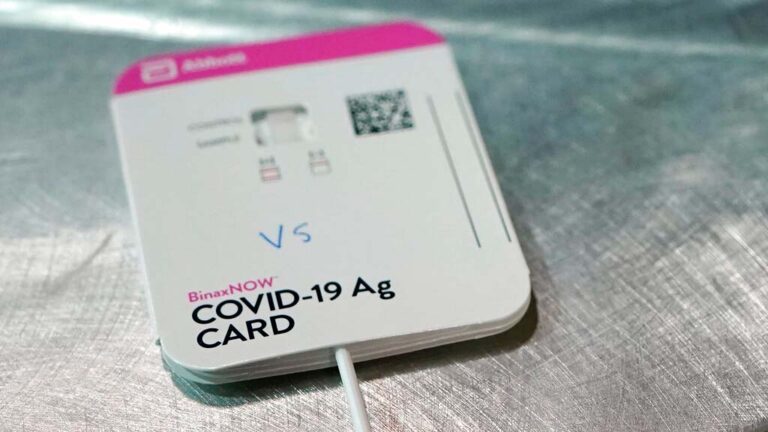CHAMPAIGN — Federal and state COVID-19 emergency declarations end on Thursday, May 11 – meaning insurers will no longer have to cover testing costs.
The Champaign-Urbana Public Health District encourages C-U and Champaign County residents to order at-home tests from the U.S. Postal Service website before May 11.
“It’s important to recognize that just because the COVID emergency is ending, that doesn’t mean COVID is going away,” said CUPHD Planning and Research Director Robert Davies.
While case numbers are low in Illinois, Davies expects COVID to be a leading cause of death for years to come both in the U.S. and abroad.
CUPHD reports 11 people are currently hospitalized with the virus in Champaign County. That’s similar to the hospitalization rate at this time last year.
While deaths are still happening due to COVID, the rate has dropped dramatically since vaccines and treatments have become widely available. The last death in Champaign County was in early April, according to CUPHD.
How much will tests cost?
Pharmacies like CVS and Walgreens currently sell at-home tests for about $10 each, or around $20 for a box of two tests. Starting May 11, it will be up to insurance companies whether to cover those costs.
Blue Cross Blue Shield of Illinois and Health Alliance will stop covering at-home tests. The costs of visiting a testing site will depend on an individual’s plan.
Medicaid will continue to cover at-home tests until September 2024.
Those with and without insurance can still get tested at certain local pharmacies for free through a Centers for Disease Control initiative.
How much will vaccines and treatment cost?
Vaccines for COVID-19 and treatments for the disease like Paxlovid are still being provided by the federal government, as long as supplies last.
“Access to COVID vaccines will not be affected until they’re commercialized,” said Davis. “I’ve heard talks that is expected to happen in the fall.”
Davies emphasized that those who are immunocompromised or 65 and older are eligible for a second bivalent shot to protect against the omicron variant.
Davies said he’s not sure when supplies of Paxlovid and other treatments might run out.
Once they do, it will be up to insurance companies to decide how much coverage they want to provide.
Vaccines will be free under most Blue Cross Blue Shield of Illinois and Health Alliance plans. But the costs of treatment may vary according to an individual’s plan.
Those on Medicaid plans will also continue to have access to vaccines without cost sharing. Free treatment will continue through September 2024.
Those without insurance can visit pharmacies for free vaccines and treatments through December 2024. The Biden administration is pushing for funding to continue the initiative past that date.
Emily Hays is a reporter for Illinois Public Media. Follow her on Twitter@amihatt.

